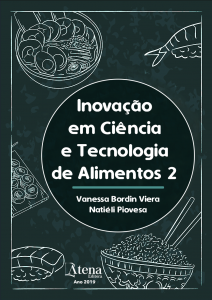
META-ANÁLISE COMO FERRAMENTA PARA AVALIAÇÃO DE DIFERENTES COPRODUTOS UTILIZADOS EM DIETAS PARA COELHOS DE CORTE
O objetivo deste capítulo é expor
uma análise meta-analítica de diferentes
coprodutos, sobre o desempenho de coelhos de
corte. Os dados utilizados, referem-se a cinco
ensaios biológicos realizados no Laboratório
de Cunicultura da Universidade Federal de
Santa Maria. Em cada ensaio foram testados
diferentes coprodutos, com diferentes níveis
de substituição, como: bagaço de uva, casca
de soja, baraço de batata-doce, resíduo de
cervejaria e topos de cenoura, em substituição
a um ingrediente convencional: o feno de
alfafa. A variável analisada foi a do ganho de
peso dos animais. Os dados foram tabulados
e analisados com a ponderação inversa da
variância e o modelo aleatório para obtenção
da estimativa da diferença na média entre os
grupos. Os resultados obtidos demonstram
que os diferentes coprodutos não apresentam
diferenças quando comparados ao tratamento
controle. No entanto, quando analisamos em
grupos observamos que o coproduto bagaço
de uva apresentou os melhores valores,
seguido da casca de soja. As diferenças não
são significativas na maioria dos subgrupos, ou
seja, estão bem próximas a médias, mostrando
que é viável o uso de coprodutos em dietas
para coelhos. Conclui-se, portanto, com base
no estudo meta-analítico, que a utilização de
diferentes coprodutos em dietas para coelhos
em substituição ao feno de alfafa é viável. Desta
forma, novos coprodutos podem ser estudados
para serem incorporados às dietas cunícolas,
visto que, a substituição é uma estratégia
promissora que pode ser utilizada obtendo-se
redução de custos e minimizando impactos
ambientais.
META-ANÁLISE COMO FERRAMENTA PARA AVALIAÇÃO DE DIFERENTES COPRODUTOS UTILIZADOS EM DIETAS PARA COELHOS DE CORTE
-
DOI: 10.22533/at.ed.99719091026
-
Palavras-chave: análise de dados, integração de resultados, tecnologia
-
Keywords: data Analytics, results Integration, technology
-
Abstract:
The aim of this chapter is to
expose a meta-analytical analysis of different
co-products on the performance of growing rabbits. The data used refer to five
biological assays performed at the Cuniculture Laboratory of the Federal University of
Santa Maria. Different co-products with different substitution levels were tested in each
trial, such as: grape marc, soybean hulls, sweet potato vines, brewery residue and
carrot tops, replacing a conventional ingredient: alfalfa hay. The variable analyzed was
the weight gain of the animals. Data were tabulated and analyzed using the inverse
weighting of variance and the random model to obtain the estimate of the difference
in mean between the groups. The results showed that the different co-products do not
differ when compared to the control treatment. However, when we analyzed in groups,
we observed that the grape marc presented the best values, followed by soybean
hull. Differences are not significant in most subgroups, showing that the use of coproducts in rabbit diets is feasible. Therefore, based on the meta-analytical study, it is
concluded that the use of different co-products in rabbit diets to replace alfalfa hay is
feasible. Thus, new co-products can be studied to be incorporated into the diets, since
substitution is a promising strategy that can be used to reduce costs and minimize
environmental impacts.
-
Número de páginas: 15
- Ana Carolina Kohlrausch Klinger
- Amanda Carneiro Martini
- Geni Salete Pinto de Toledo
- Luciana Pötter
- Leila Picolli da Silva
- DIULY BORTOLUZZI FALCONE


